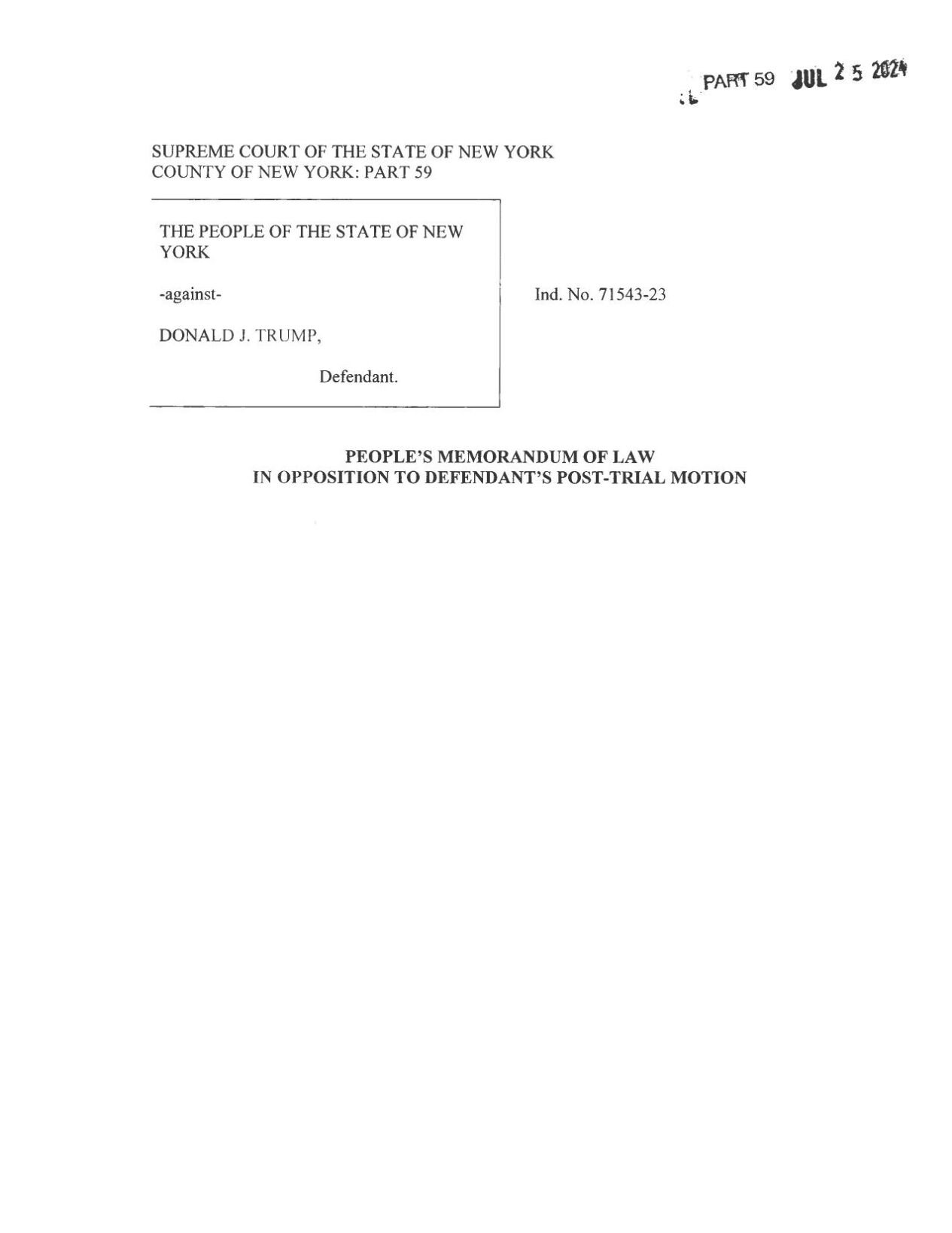(The Center Square) – Defense attorneys for former President Donald Trump want to use a recent U.S. Supreme Court decision to overturn his New York hush money trial conviction.
Prosecutors from Manhattan District Attorney Alvin Bragg’s office told Judge Juan Merchan that the ruling from the nation’s highest court is unrelated to his conviction on charges that he illegally paid hush money to keep women quiet about alleged sexual encounters and then covered up the payments as legal expenses during his 2016 campaign.
“This Court should reject defendant’s request to vacate his conviction and dismiss the indictment on the basis of the Supreme Court’s recent ruling on presidential immunity. Trump v. United States,” prosecutors wrote in a legal motion. “Contrary to defendant’s arguments, that decision has no bearing on this prosecution.”
In July, the U.S. Supreme Court ruled that presidents and former presidents have absolute immunity for actions related to core constitutional powers and presumptive immunity for official actions. The ruling, which was 6- 3, said the president has no immunity for unofficial conduct.
New York prosecutors said the high court’s ruling doesn’t affect his New York case.
“This case involved evidence of defendant’s personal conduct, not his official acts,” prosecutors wrote in their latest filing.
In late May, a Manhattan jury convicted Trump on all counts in his hush money case. Trump was convicted of 34 counts of falsifying business records for disguising hush money payments to an adult film actress as legal costs ahead of the 2016 election. Under New York state law, falsifying business records in the first degree is a Class E felony with a maximum sentence of four years in prison.
Trump’s sentencing is scheduled for 10 a.m. E.T. Sept. 18.


